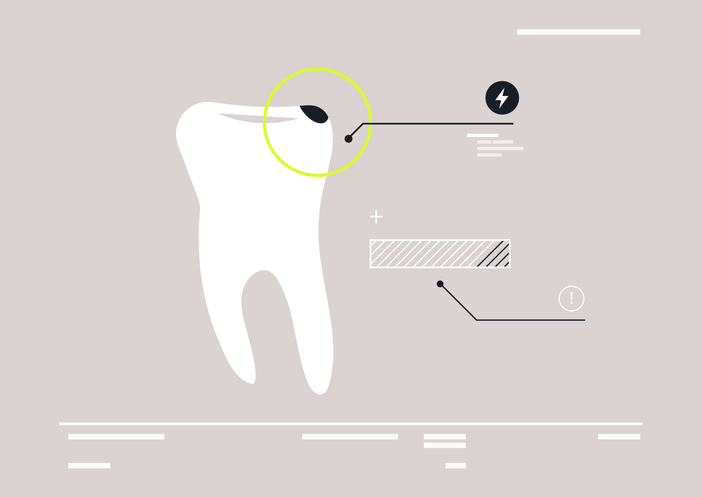
Can AI model boost prediction of dental caries?

Investigators have analyzed whether an artificial intelligence-based model may be effective at predicting dental caries, according to an article published in PracticeUpdate.
In the study, published in Frontiers in Oral Health, the investigators used Temple University Kornberg School of Dentistry electronic health records system data to examine the accuracy, precision and predictive capability of an AI model compared with traditional multivariable regression techniques when calculating the future risk of dental caries in over 3,500 pediatric patients aged six to 16 years.
The average decayed-missing-filled teeth score was 0.85 ± 2.15, and the average decayed-extraction-filled teeth score was 0.81 ± 2.15. The investigators found that the XGBoost model was the most accurate and sensitive algorithm, followed by the Support Vector Machine and Lasso Regression models. Further, age and visible plaque were found to be the most valuable factors in the prediction of dental caries.
The investigators underscored that the AI model outperformed the traditional multivariable regression techniques. However, further studies incorporating more diverse patient data may be needed to validate the findings.
Read more: Frontiers in Oral Health
The article presented here is intended to inform you about the broader media perspective on dentistry, regardless of its alignment with the ADA's stance. It is important to note that publication of an article does not imply the ADA's endorsement, agreement, or promotion of its content.